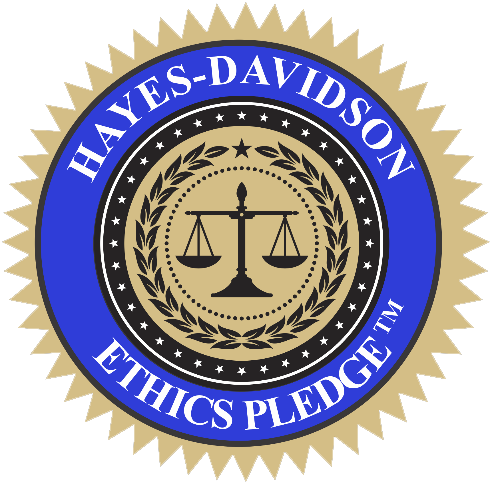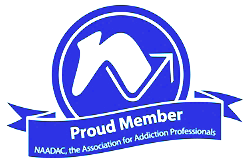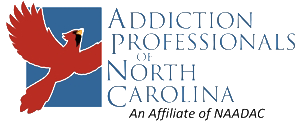Practical Questions, Simple Answers
 What’s the difference between Sober Living and Halfway Homes?
What’s the difference between Sober Living and Halfway Homes?
Sober living is still relatively “new” to most people- many haven’t heard of it before because the term “halfway house” is more often used, though incorrectly. “Halfway house” came into use in the 1905s as an alternate setting to incarceration. The term can be stigmatizing for anyone who is in a process of betterment. There is a spectrum out there of what sober living can look like. Some of these are very well intentioned- some are operated strictly for profit and have very little clinical basis of understanding in addiction. It is helpful to know where you or your loved one is going, how they operate, the upfront fees, and the level of structure/supervision. Ethics and motives should be very clear.
Why is Asheville so popular for recovery?
Asheville is fortunate to have an abundance of excellent sober living programs in the area- Firebird’s values toward supporting those in need is collaborative, not competitive. If we can’t meet your needs, we’ll refer onward to the best fit. Tackling addiction is something best done as a unified front. There’s no time to waste with addiction. It might not benefit the “competitive” mindset, but our values guide our administrative principles. As far as our city and region goes, it’s full of options and history. People have been flocking to the mountains for wellness since recorded history. They say “there must be something in the water.” 🤷♂️
What’s the Cost?
We have cut our rates in half this year to better reflect the mission of ensuring that transformation is more broadly accessible and to meet the changing economy. The first month is $2500, and it’s $1500 per month thereafter. We continue to offer scholarships as available and sustainable, and will be in a better position to do so as we advance through our process in becoming a 501-c3 Non-Profit Organization, expected in early 2022.
Questions most people ask (or should be asking!) about our sober living program…
AKA the FAQ!
First and foremost, you don't go into this to make money- and if you do, there's a problem! We simply strive to sustain best outcomes, with an "Open Books" policy for Members, Families and Stakeholders (who else does that?). Individually, we gladly discuss custom arrangements for those who are enthusiastic to recover and have special financial needs.The first month of for new Members combines a one-time Entry Fee with our Monthly Fee into a single payment of $3000. Thereafter, the only cost is the Monthly Membership Fee, which is $1975 (October 2023 rate). You'll see quickly why we are an extraordinary value- we offer the same quality services many other programs provide, for thousands of dollars less. There's no surprise or hidden costs. This is it.
We use both standard and electronic billing solutions and prefer not to use credit cards, because banks get those extra charges. For those re-entering care following exceptional circumstances, a deposit may be required and held by a third party.
Effective October 1st 2023, payments will be due on the 29th or the 15th of each month, whichever is the closest to the date of admission.
We are not in this to make a staggering profit, as our "Open Book" policy will show you. We're here because we truly believe that "Recovery is a necessary social movement to reclaim the value of life." We guarantee that the rate you enter with is the rate you pay for the entire length of stay. As stated above, we still need to meet the needs of the organization, and be sustainable, so if/when rates increase it's based on the economy and meeting our changing needs. As we can all understand, the economy has put us all in vulnerable places- we want to charge the least amount to provide the most secure service.
Occasionally, Alumni may choose to return to care- there is a special rate to address the needs they require. Contact us to discuss this.
We offer transportation for meetings, grocery, job search, but vigorously encourage Members to use city transit, which is efficient and covers a wide area. We can easily arrange basic needs rides, but to foster stronger interdependence and self-reliance we can't offer "concierge services." We'll coordinate the day for those who don't have vehicles to ensure everyone gets where they need to go. We STRONGLY recommend that vehicles are held off for the first 30 days, but we will evaluate options on a case by case basis. We gladly pick up admitting Members at the airport or local inpatient treatment programs (out of area programs incur a small fee).
Our home is surrounded by the ancient Blue Ridge Mountains in popular Asheville, NC. We're just across the street from the serene and recreationally abundant Beaver Lake. We are close to Downtown, the popular River Arts District, and West Asheville. There are 10 support group meetings in easy walking distance from our "HQ," Kingfisher House. We are just miles away from ziplining, whitewater rafting, horseback riding, and of course, great hiking. We are lucky to overlook a carp pond at Kingfisher.
This one's easy. We've long been known as "not your cookie cutter" kind of program, for "not your cookie cutter" kind of people. But that's not by accident. There's an Ethos behind that. We don't blithely 'accept' or 'tolerate' people who are different, we KNOW AND CELEBRATE the intrinsic and fundamental differences in all people. We uplift the necessity to restore dignity to those who have been branded as addicts in a pejorative way. Addiction needs to be liberated from the grimy images of Hollywood, just as we need to liberate ourselves from stereotyped images which divide us. Firebird absolutely supports free expression, while ensuring that our Program is especially welcoming for those who have experienced any form of marginalization or disadvantage. Typically, that includes most people recovering from addiction, though not everyone is aware of how lucky they've been. To ensure an atmosphere conducive of compassion and our values, our Program stands for equity of race, gender, orientation, religion/non-religion, immigration status, culture, military status, socioeconomic background, or other frequent targets of discrimination. Discriminatory practices or statements are expressly prohibited.
Please see
Our Structure for a broad explanation. We wake up as the sun rises over the slopes of the Blue Ridge mountains, and we begin with a morning meditation. Seeking the "still small voice" while focusing on the day's reading, we recognize that meditation doesn't mean the same thing to everyone, and lead a variety of different meditative exercises while the brain awakens. After this contemplative space we plan our day, taking note of appointments, preferred meeting venues, work/school schedules, and work assignments to be done on our property. Except when used for work or school, television and the common area computer are off from 11-4pm during the week. Dinners are preferably home-based, cooking together and learning from each other. Our evenings have a regular check-in or structured meeting. We have a mandatory weekly on-site 12 Step Meeting- which has its own distinct flavor. Staff lead activities as well, encouraging Members to share in an open, mutually supportive way.
To be direct, neither. This is a uniquely developed best-practice informed model of community reinforced relapse prevention with individually focused counseling and intervention. Our Members have received treatment at their referring inpatient facilities, or at current or referring IOPs or other dedicated full-time clinical settings. This is a post-clinical environment. While counseling and therapeutic interventions occur here, they are not billed for nor are they offered in lieu of professional clinical services. We collect basic, non-account specific insurance information during the intake process only in the case that a Member has either requested a therapy/psychiatry referral and is checking area provider coverage, lost their card, or has an emergency and data needs to be transferred to the responding facility. Jay is a certified and registered substance abuse counselor, and we access clinicians representing the fields of Psychotherapy, Trauma, and Substance Use, but their level of engagement will not represent the legal nor casually implied term "treatment" (which cannot by Law take place in the same residence as the individual being served, unless an MD is supervising a State Regulated Facility). Staff are clinically supervised per their credential requirements.
We offer, for free, follow up check-ins as part of our commitment to Quality Improvement/Quality Assurance and also to assist in data collection for our long-range longitudinal studies. All Alumni, regardless of status or services, are welcome to attend our weekly in-house 12 Step Meeting. If their living situation goes south, we have a Safe Haven policy where they can return to Firebird while making other arrangements at no charge. We offer Continuing Care as an additional post-grad service. We will randomly visit to collect drug/alcohol screens, and establish regular times for individual check-ins as they fit best into the Alumni's schedule. This ensures that they not only maintain a connection to assist in their sobriety plan, but to remind them of their network of support that they've built at Firebird. This fee is $500 monthly unless otherwise negotiated.
Let's be honest- relapses happen. The addiction condition is insidious and while we offer hope with a substantial base of success and support, we will never promise a cure. We have a strict substance use policy that addresses what should happen based on three levels of severity: recurrence, intoxication, and relapse. All of these instances are very damaging to the support network of the household, and are managed in a very consistent, methodological way. We practice compassion, but we also have to draw boundaries for safety. Basically, one can expect that in most cases, they will need to re-enter treatment for however much time is needed, and they will be referred to the appropriate level of care from there onwards. Should one be dismissed from the program, they forfeit their Membership, including all fees paid for Membership. Just like at a gym, for example- if you've been warned about abusing the equipment, and you keep doing it, they'll cancel your Membership there and in the same way, you don't expect to get your fees back. Same here, hard as the lesson may be. We will bend over backwards, however, to help a dismissed person find the next right program according to their needs.
Our current longitudinal rate of long-term sobriety since we began is 69.5%, versus the national SAMHSA baseline of minimal post-inpatient relapse prevention of 6-13%.
Other questions? Want an application? Just ask!
 What’s the difference between Sober Living and Halfway Homes?
What’s the difference between Sober Living and Halfway Homes?



